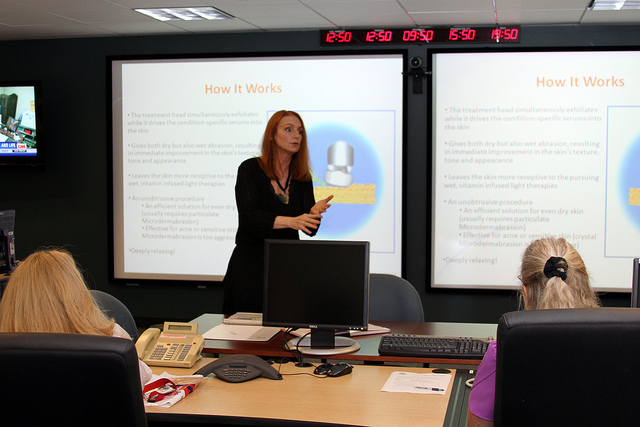Zimmerman is the executive director of the North Carolina Early Childhood Foundation.
October is National Work and Family Month – a time to celebrate family-friendly workplaces and remind employers about the benefits of being family friendly, both to their business now and to today’s children – the workforce of the future.
It’s also a time to reflect on how employers can do more to support working parents, the majority of whom are struggling to balance work and family obligations. Consider these statistics:
- 75 percent of U.S. mothers and 50 percent of U.S. fathers say they’ve passed up work opportunities, switched jobs, or quit to tend to their children.
- One in three families spend 20 percent or more of their annual household income on child care.
- Only 13 percent of private industry workers have access to paid family leave, and nearly a quarter of moms return to work two weeks after having a baby.
- Low-income and hourly workers traditionally have endured the least supportive work environments, which has significantly and disproportionately affected their health and economic security.
As a working parent, I’ve encountered some of these struggles myself. When my daughter was born 20 plus years ago, my boss at the time made sure that I knew that he had worked with women who returned to work soon after giving birth. There was an implication that a dedicated employee would figure it out; that if women wanted to be in the workplace, it was their responsibility to make it all work.
Fortunately, family-friendly benefits have numerous business benefits, so employers don’t have to choose between benefits and the bottom line. A 2017 Ernst and Young survey of more than 1,500 employers with paid parental or family leave benefits showed that the majority of employers of all sizes reported better employee morale, lower employee turnover, increased profitability, and improved productivity. And according to a new report of research commissioned last year by the North Carolina Early Childhood Foundation, North Carolina employers and employees alike think family-friendly workplaces have a competitive advantage:
- 71 percent of North Carolina employers think family-friendly policies have a positive impact on their organization.
- 73 percent of NC employees would be more committed to their employer if they offered more family-friendly practices.
- 94 percent of NC employees say that family-friendly policies help employers attract and retain talent – and keep businesses strong.
- And nearly half of NC employers plan to deepen their family-friendly policies this year.
For children and families, the benefits of family-friendly workplaces are numerous and long lasting and include positive impacts on health, well-being, financial stability and future career success. Children whose parents have access to family-friendly benefits receive much needed support and time with their parents during the most critical years of human development – from birth through age eight – when their brains are developing and forming the foundation for learning, health and well-being. This leads to positive health outcomes, higher education attainment and future career success.
For working parents, the benefits are also immediate and long-lasting. Parents who have access to family-friendly benefits are more productive, more satisfied with their jobs, have better health outcomes and are less likely to drop out of the labor force.
That’s why NCECF created Family Forward NC, an initiative to increase access to family friendly benefits — big and small — that improve workplace productivity, recruitment and retention; grow a strong economy; and support children’s healthy development. Through Family Forward NC, supported by founding sponsor Blue Cross and Blue Shield of North Carolina, we will improve children’s health and well-being and keep North Carolina’s businesses competitive by celebrating workplaces that are already family friendly and providing information and support to inspire employers who want to expand their current practices.
Since Family Forward NC launched in February, we’ve been crossing the state to listen, learn and engage employers and employees about family-friendly workplace policies to find out what is currently offered, what employees want from family-friendly benefits, what employers would like to offer and what the challenges are to doing so.
These discussions, along with our research and an Advisory Council of experts across the state, will help inform a guide to family-friendly workplaces that will be a toolkit for employers of all sizes with practical tips for implementing family-friendly workplace practices such as paid parental leave, flexible scheduling and accommodations for pregnant workers.
Our work with Family Forward NC also included some inward reflection on our own policies and the realization last year that we needed to create an official paid leave policy for parents after the birth or adoption of a child. I am proud to say we now offer new mothers and fathers 12 fully paid weeks of leave following a birth or adoption. We’ve already proven that the policy is sustainable (our first employee to use the benefit returned from leave in May), and we hope our success as a small organization offering a paid leave benefit will help inspire other small employers to do the same.
With Family Forward NC, our goal is to keep our state’s businesses competitive and improve the health and well-being of our children and future workforce. If you are an employer, HR director or employee with an interest in helping your workplace become more family friendly (or celebrating your already amazing policies) we hope you’ll engage with Family Forward NC. Learn more and sign up to stay informed at www.familyforwardnc.com.


There are no comments
Add yours